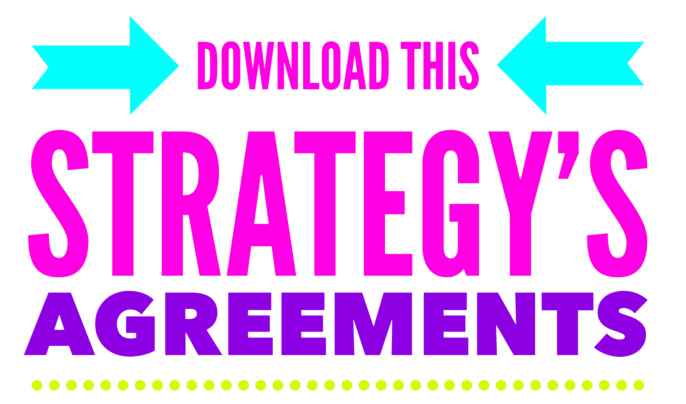Subject to the Existing Mortgage
Buying a property "subject to" means acquiring ownership of a property while taking over the existing mortgage or financing arrangement that is already in place. In this scenario, the buyer assumes responsibility for making the mortgage payments and becomes the legal owner of the property, but the original mortgage remains in the seller's name. The buyer is essentially "subject to" the terms and conditions of the existing mortgage, including the interest rate, loan balance, and any other contractual terms. This approach can be a way for buyers to acquire a property without having to secure a new mortgage, but it carries certain risks and legal considerations.
Here's an example of Buying Using Subject To The Existing Loan:
Property Details:
Purchase price of the home: $300,000
Seller's outstanding mortgage balance: $200,000
Seller's equity in the property: $100,000
"Subject to" Transaction:
The buyer creates an entity (such as an LLC) to hold the property.
The buyer takes over the property "subject to" the existing mortgage, meaning the buyer agrees to make the mortgage payments but does not assume personal liability for the loan.
The seller's mortgage remains in the seller's name, but the buyer takes control of the property.
Due Diligence and Closing:
The buyer conducts due diligence on the property, including inspections and title searches, to ensure there are no hidden issues or liens.
Once satisfied with the property's condition and title, the buyer and seller proceed with the closing.
The closing takes place at a designated location, such as a closing agent's office or a title company.
Ongoing Obligations:
The buyer assumes responsibility for making the mortgage payments directly to the lender.
The buyer takes on all costs and responsibilities associated with owning the property, such as property taxes, insurance, and maintenance.
The seller's mortgage remains in place until the buyer either refinances the loan in their own name or sells the property.
🚀 ASK THIS QUESTION TO SEE IF THIS "SUBJECT TO" STRATEGY FITS THE HOMEOWNER LEAD YOU'RE TALKING TO:
"Mr. Home Owner, If I were to take the house off your hands - allowing you to walk away - would you allow us to continue making your mortgage payment for you right away?"
🚀 You'll Know This Strategy Fits If The Homeowner Says:
"I’m behind on mortgage payments."
"I can’t afford the mortgage anymore, but I don’t have much equity."
"I just want out of the property without damaging my credit."
"I have a really low interest rate on my mortgage, but I need to sell."
"I’m willing to walk away from the house as long as someone takes over the mortgage."
"I have no equity or very little equity, so I don’t expect a big payday."
Best For:
Sellers with little to no equity in the property.
Distressed homeowners who need relief from mortgage payments but want to avoid foreclosure.
Homes with low-interest loans that make it appealing for a buyer to take over.

Agreement for This Strategy:
Purchase and Sale Agreement
+ Subject to Disclosure
CLOSES AT TITLE ATTORNEY CO
because DEED TRANSFERS
Quiz/Test: Subject to Real Estate Investing
What is the primary benefit for a buyer in a "subject to" transaction?
a) Assume personal liability for the loan
b) Obtain the property without qualifying for a new loan
c) Transfer the mortgage to a different lender
d) Pay off the seller's outstanding mortgage balance
What type of entity is typically created by the buyer in a "subject to" transaction to hold the property?
a) REIT (Real Estate Investment Trust)
b) LLC (Limited Liability Company)
c) LLP (Limited Liability Partnership)
d) S-Corporation
Who is responsible for conducting due diligence on the property in a "subject to" transaction?
a) The buyer
b) The seller
c) The lender
d) The government
What is the purpose of conducting inspections and title searches during due diligence in a "subject to" transaction?
a) To determine the property's fair market value
b) To identify hidden issues or problems with the property
c) To negotiate a lower purchase price with the seller
d) To assess the buyer's ability to qualify for a new loan
What happens to the seller's mortgage in a "subject to" transaction?
a) It is paid off by the buyer at closing
b) It remains in the seller's name
c) It is transferred to the buyer's name
d) It is discharged by the lender
Who assumes responsibility for making the mortgage payments in a "subject to" transaction?
a) The seller
b) The buyer
c) The lender
d) The government
In addition to mortgage payments, what other ongoing obligations does the buyer take on in a "subject to" transaction?
a) Property taxes, insurance, and maintenance
b) Homeowner association fees
c) Capital improvements and renovations
d) Tenant screening and management
e) All of the above
When does the seller's mortgage in a "subject to" transaction get refinanced or paid off?
a) Immediately after the closing
b) Within 30 days of the closing
c) Within 1 year of the closing
d) It remains in place until the property is sold
What legal documents are typically involved in a "subject to" transaction?
a) Purchase and Sale Agreement
b) Subject to Disclosure
c) Deed transfers
d) All of the above
Where does the closing typically take place in a "subject to" transaction?
a) Seller's attorney's office
b) Buyer's attorney's office
c) Title company's office
d) Real estate agent's office
True or False: The "subject to" strategy is suitable for homeowners who want to walk away from their mortgage payments immediately.
a) True
b) False


